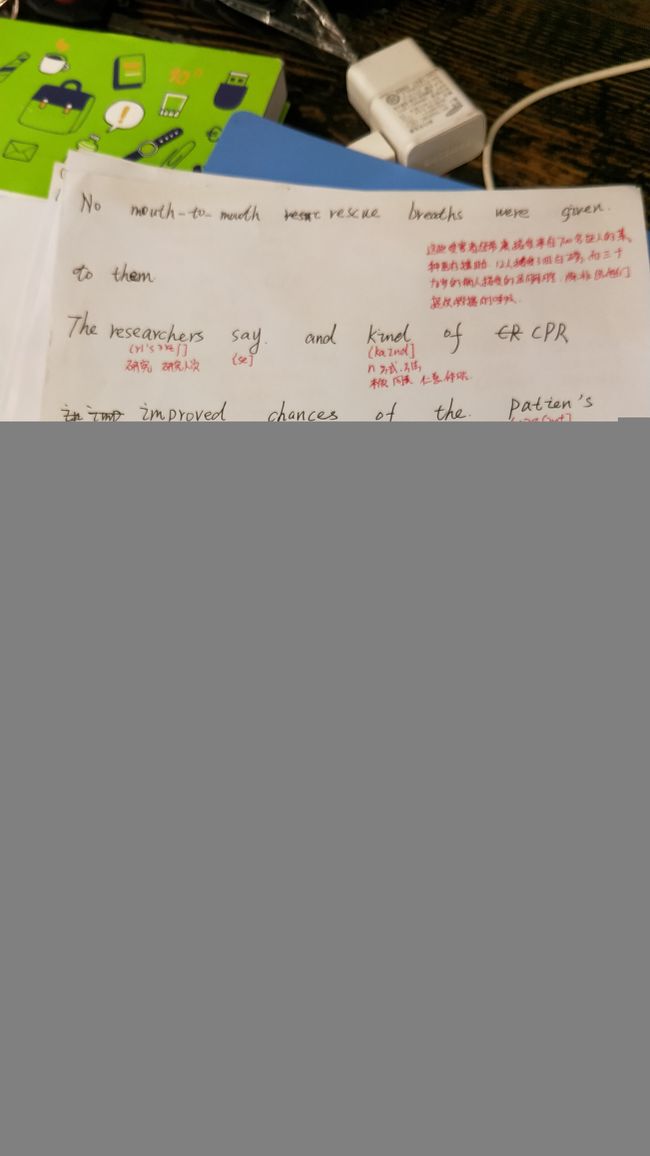- 关于wandb: Network error的问题
Young_Tramp
一些小问题linux
关于wandb:Networkerror的问题我的情况:vscode远程服务器,服务器才重启过,wandb之前一直正常,重启后就出现错误:wandb:Networkerror(ConnectionError),enteringretryloop.wandb:W&BAPIkeyisconfigured.Usewandblogin--relogintoforcereloginwandb:Network
- wireshark解密TLS流量
头顶路由器
网络工程师
原理:通过设置环境变量截取浏览器的master_secret,进而实现解密TLS的目的。未解密的TLS包:1.设置系统属性环境变量右键我的电脑点击属性>>高级系统设置>>环境变量
- 人类为何追求AGI?一个AI代码生成工具的思考
前端
近年来,“AI写代码工具”的出现,无疑为软件开发领域带来了革命性的变化。而我们今天要探讨的,是关于人类对通用人工智能(AGI)的追求,以及这与AI辅助开发工具之间微妙的联系。文章开头就抛出了一个尖锐的问题:人类为何如此痴迷于AGI,而非将更多精力放在改善人类生活本身?文章作者表达了对AGI发展方向的担忧。他认为,目前对AGI的追求,更多地体现在创造能够取代人类的超级智能上,例如“少数派报告式”的行
- AI赋能:2024年,如何用AI提升效率,我的15个实用技巧及2025年展望
前端
2024年,人工智能技术突飞猛进,深刻地改变了我们的工作方式。作为一名科技领域的作者,我亲身体验了AI带来的效率提升。过去一年,我探索了各种AI工具,并将其应用于我的日常工作中,显著缩短了工作流程,节省了大量时间。本文将分享我在2024年使用AI提升生产力的15个实用技巧,并展望2025年AI可能带来的更多可能性。AI赋能下的高效创作:从代码到图像,全方位提升首先,AI极大地辅助了我的编程工作。对
- 三套uniapp视频教程,让你彻底搞懂uniapp。学习路上助你一臂之力!
guoguo507
uni-app学习
快速入口在文章最后,大家耐心观看!谢谢(想学其他更多编程技术视频,请进我的博客查看。)Uniapp开发:视频教程的助力之旅在当今数字化飞速发展的时代,移动应用开发已成为众多开发者关注的焦点领域。无论是为了满足企业业务的拓展需求,还是个人开发者想要实现自己的创意想法,开发一款成功的移动应用都面临着诸多挑战和机遇。在这样的大背景下,Uniapp作为一款跨平台开发框架,正以其独特的优势吸引着越来越多开发
- 2024 年技术盘点与展望:从 AI 辅助到个人成长的多元探索
109702008
杂谈人工智能
一、引言2024年,技术领域的发展日新月异,我在这片汹涌的浪潮中不断探索与成长。这一年,我不仅见证了人工智能技术的飞速发展,还通过AI辅助创作、AI赋能编程以及参与各类竞赛与课程,实现了个人技术的显著提升与视野的拓展。本文将从总结盘点的角度,回顾我在技术领域的成长历程,并对未来进行展望。二、AI辅助创作:提升写作效率与质量在自然语言处理技术(NLP)的推动下,AI写作工具成为了我的得力助手。这些工
- 2025 开局,我的身体给我上了一课
程序员
背景说实话,时间这东西真的太快了,一年就过去了。每到这个时候,大家都会写年终总结:这一年,做了什么?也许是因为找不到清晰的答案,干脆就摆烂,都懒得写了。但今年,我决定不再逃避。至少,我想好好记录下这个有些特别的开局回想起之前的一篇总结文章,我提到“跑步”。这项坚持了四年多的习惯,对我来说不仅仅是运动,更像是一种生活方式。它见证了我的汗水,也见证了我的坚持。虽然偶尔也会偷懒,但最终,我坚持了下来。它
- Mysql运维篇(五) 部署MHA--主机环境配置
努力的兜
mysql运维数据库
一路走来,所有遇到的人,帮助过我的、伤害过我的都是朋友,没有一个是敌人。如有侵权,请留言,我及时删除!大佬博文https://www.cnblogs.com/gomysql/p/3675429.htmlMySQL高可用(MHA)-知乎一、MHA简介:MHA(MasterHighAvailability)目前在MySQL高可用方面是一个相对成熟的解决方案,它由日本DeNA公司youshimaton(
- WEB2.0网站构架分析
kaka_sun
参考文档webmyspace数据库数据库服务器服务器youtube
FovWeb拓展你我的视野,关注互联网和网站相关技术与运营。FROM:http://www.fovweb.com/optimizer/web20-site-architecture-analysis/一、web2.0网站常用可用性功能模块分析Web2.0网站是指将传统的网站构架(平台、内容源、用户、传播方式等)转化到以用户为核心的网站构架上来,包括一系列体现web2.0概念的元素、定位和创意。we
- 【Microi吾码】开源力量赋能低代码创新,重塑软件开发生态格局
学无止尽5
人工智能开源低代码
我的个人主页文章专栏:Microi吾码一、引言在当今数字化浪潮汹涌澎湃的时代,软件开发的需求呈现出爆发式增长。企业为了在激烈的市场竞争中脱颖而出,不断寻求创新的解决方案以加速数字化转型。传统的软件开发方式往往面临着开发周期长、技术门槛高、成本高昂等诸多挑战。而Microi吾码的出现,犹如一盏明灯,为软件开发领域带来了新的曙光。它以开源和低代码为核心特色,正逐渐改变着软件的开发模式,让更多的企业和开
- 我的创作纪念日
自由鬼
行业发展纪念
机缘生命的旅程中,机缘如同一束微光,指引着我在困顿中寻找前行的方向。机缘说来就来,不可言语。收获没有想到,在2024年12月13日正式通过csdn.net发布博客到目前就有了1358个粉丝、97994阅读量、1734收藏,能够得到认同非常高兴。日常我的日常生活虽忙碌,却充满意义。除了工作和研究,我常反思自身与外界的关系,思考如何让IT这一生产力能够发挥更大的作用。成就尽管前行的道路上仍充满挑战,我
- linux中网卡配置,两张网卡,分别用于内网和外网的通信
橘橘子~
Linuxlinux
环境:centos7、VMware一、一张网卡实现内网通信(不能访问外网):1.首先查看已有的网卡:[root@localhost~]#ipaddr我的默认网卡是ens332.VMware右下角打开设置第一张网卡ens33:3.选择VMnet14.打开真机的网络连接查看网段,我的为112网段:5.配置网卡文件:<
- leetcode-215. 数组中的第K个最大元素
ggaoda
排序问题c++leetcode算法
快速选择题目详情给定整数数组nums和整数k,请返回数组中第k个最大的元素。请注意,你需要找的是数组排序后的第k个最大的元素,而不是第k个不同的元素。示例1:输入:[3,2,1,5,6,4]和k=2输出:5示例2:输入:[3,2,3,1,2,4,5,5,6]和k=4输出:4我的方法:1.快速选择快速选择一般用于求解k-thElement问题,可以在O(n)时间复杂度,O(1)空间复杂度完成求解工作
- python循环——九九乘法表(更加轻松的理解循环结构)
李雨非-19期-河北工职大
成长pythonpython开发语言循环
感受首先,得明确意识到这个问题,就是我的循环结构学的一塌糊涂,完全不能很好的使用这个循环来实现各种九九乘法表达输出,这样的循环结构太差了,还需要我自己找时间来补充一下循环的使用,来拓宽自己的思考方向,这是个不错的机会,让我更加充分的体会循环的嵌套。重点在写博客中对可迭代对象的求知欲不断的加深,让我对于对象以及可迭代的认识更深了,不得不说,有时候还是得写出来才可以给予自己更加强大的欲望,从而推动自己
- 近千万的数据怎么删除
lozhyf
java
记录下MySQL表,每天大概新增3000万条记录,存储周期为1天,超过1天的数据需要在新增记录前老化。连续运行9天以后,删除一天的数据大概需要3个半小时最初的方案(因为未预料到删除会如此慢),代码如下(最简单和朴素的方法):deletefromtable_namewherecnt_date<=target_date最终实现了飞一般的速度删除3000多万条数据,单张表总数据量在4600万上下,优化过
- Python 中无穷的表示
梦想是优秀社畜
Pythonpython编程语言经验分享
我们在python编程过程中可能需要设定一个无穷大的值来辅助我们的逻辑语句,下面展示python中无穷大的表示,和无穷的判断方法。上代码!!!#无穷的判断需要导入math模块importmath#正无穷zheng_wq=float('inf')#负无穷fu_wq=-float('inf')#float('-inf')#判断是否无穷math.isinf(zhengwq)#最终结果是True希望我的笔
- 如何学懂C++语言:C++从入门到精通的全面指南(完整C++学习笔记)
猿享天开
c++学习笔记
数字人助手猿小美带你一起学编程一、引言作为一名拥有多年开发经验的技术人员,我的职业生涯涵盖了多种编程语言,包括C语言、C++、C#和JavaScript等。在我多年的编程生涯中,这些语言不仅丰富了我的知识储备,还极大地拓展了我的视野和技能。出于对编程的热爱,以及希望帮助更多编程爱好者的目的,我决定利用业余时间整理一套全面的C++语言学习指南。这套指南旨在为C++语言编程爱好者提供一个清晰的学习路线
- 使用docker在amd64上运行arm64的Ubuntu
Alone九年
dockerubuntu容器arm开发linux运维
前言因需要在x86的Ubuntu上运行arm64版本的Ubuntu,方便调试不同架构的代码,所以使用docker容器来实现。配置完所需环境测试后发现这个方案可行,相当于部署了虚拟环境。而且docker容器都是隔离的,使用更方便。在多台设备上配置太麻烦,所以写成简易的配置脚本。我的配置脚本#!/bin/bash#更改DNSsudosed-i's/#DNS=/DNS=192.168.101.201/'
- 基于区块链的云上数据访问控制模型研究
XLYcmy
论文阅读阅读笔记网络安全论文阅读论文笔记区块链访问控制云数据
论⽂选择理由:汉语论⽂,对于新⼿⼊⼿阅读相对容易之前,进⾏过区块链⽅⾯的研究,有⼀定基础⽅便理解论⽂通读情况:①基本掌握论⽂所提出背景和要解决的问题②⼤致理解论⽂所提出的⽅案和优势收获:⼤致梳理出⼀篇做的架构:(我的理解)背景→现有⽅案不⾜→预备免识→提出⽅案→⽅案核⼼设计与算法→与其他⽅案对比→设计实验环境与实验指标进⾏⽅案验证→总结与展望
- ST编程指南详细写作大纲
阿凡工控分享
ST编程指南PLC
从今天开始除了做视频,也是应一些后台观众的需求,希望我将ST编程单独说明,纵观网上这么多教程,大多很零散,而且不全面,所以我打算开个坑,自己写一个ST编程指南,希望能够帮助到大家,这里需要说明一点,这一次创作并不是免费的,因为做视频本身就很占用我的时间了,写作的话,也是希望大家多多赞赏或者付费支持下我,谢谢了!以下是我打算的一个大纲。引言1.1ST语言简介ST(StructuredText)的定义
- 【MySQL】Mysql数据库导入导出sql文件、备份数据库、迁移数据库
程序员洲洲
数据库数据库mysql导入导出sqlsql文件备份迁移
本文摘要:本文提出了xxx的实用开发小技巧。作者介绍:我是程序员洲洲,一个热爱写作的非著名程序员。CSDN全栈优质领域创作者、华为云博客社区云享专家、阿里云博客社区专家博主。同时欢迎大家关注其他专栏,我将分享Web前后端开发、人工智能、机器学习、深度学习从0到1系列文章。同时洲洲已经建立了程序员技术交流群,如果您感兴趣,可以私信我加入我的社群,也可以直接vx联系(文末有名片)v:bdizztt随时
- Hadoop 和 Spark 的内存管理机制分析
王子良.
经验分享hadoopspark大数据
欢迎来到我的博客!非常高兴能在这里与您相遇。在这里,您不仅能获得有趣的技术分享,还能感受到轻松愉快的氛围。无论您是编程新手,还是资深开发者,都能在这里找到属于您的知识宝藏,学习和成长。博客内容包括:Java核心技术与微服务:涵盖Java基础、JVM、并发编程、Redis、Kafka、Spring等,帮助您全面掌握企业级开发技术。大数据技术:涵盖Hadoop(HDFS)、Hive、Spark、Fli
- python传参是什么意思_如何最简单、通俗地理解Python的传入参数?
weixin_39857876
python传参是什么意思
目录:一、笔记二、我的自学路线三、笔记目录一、笔记①传入参数分为形参和实参两种,形参是形式参数(变量),实参是实际参数(值)。②传入参数,一个星号*表示传入一个元组,两个星号表示传入一个字典。③加了星号*的变量会存放所有未命名的变量参数。④加了星号**的变量会存放所有命名的变量参数。⑤*号的使用使得传入的参数不定长。⑥传入参数中,默认值参数都是放在后面。#coding=utf-8#形参是定义函数后
- 【LGR-196-Div.4】洛谷入门赛 #26 题A - H 详细题解--优化思路简洁代码(C++,Python语言描述)
多思考少编码
洛谷入门赛题解算法c++python开发语言
前言:觉得这个比赛很有意思的,都是暴力题,涉及一些细节,难度比较适合刚学编程语言的,可以很好的锻炼基础还有手速,最后两题也是比较有意思,之后也准备更新atc的比赛题解和洛谷的一些高质量比赛题解(算法网瘾就是想参加各种比赛)如果觉得有帮助,或者觉得我写的好,可以点个赞或关注,也可以看看我的一些其他文章,我之后也会更新一些基础算法详细解释比赛链接:【LGR-196-Div.4】洛谷入门赛#26-洛谷|
- HTTP 状态码全知道
计算机毕设定制辅导-无忧学长
#HTTPhttp网络协议网络
一、HTTP状态码为何如此重要?在Web开发的世界里,HTTP状态码就像是服务器与客户端之间的“秘密语言”。当你在浏览器地址栏输入网址按下回车键,或是点击网页上的链接、提交表单数据,浏览器都会向Web服务器发送HTTP请求,而服务器处理完请求后,会返回一个包含状态码的响应消息。这个三位数字的状态码,虽然简短,却蕴含着丰富的信息,它清晰地反映了服务器对请求的处理结果,是服务器与客户端沟通的关键一环。
- LiteFlow上下文与组件设计,数据依赖梳理
后端java
个人博客:无奈何杨(wnhyang)个人语雀:wnhyang共享语雀:在线知识共享Github:wnhyang-Overview参考如何理解上下文这个概念?|LiteFlow数据上下文的定义和使用|LiteFlow我的业务项目是否适合用LiteFlow?在选择使用LiteFlow之前应该要对其有一些了解,不求熟悉源码,但对于其设计思想还是了解一下的。这将对于后面使用有很大帮助,官方文档和源码都是很
- 风控系统建设,指标策略规则流程设计,LiteFlow隐式子流程,构造EL和Chain
个人博客:无奈何杨(wnhyang)个人语雀:wnhyang共享语雀:在线知识共享Github:wnhyang-Overview简介前面有很多文章已经说了,我要利用LiteFlow做风控系统。至于进度嘛,只能尽力而为,毕竟我的惰性也很强。下面是目前Git的提交记录,代码托管在Github和Gitee,但是是私有仓库,因为还不是开放的时候,还有很多要做的。其中能梳理的仅是主流程的TODO都有下面这么
- 学习笔记040——如何定时备份服务器中的数据库?
上下求索.
MySQLLinuxmysql服务器
目录1、编写备份脚本:2、创建crontab定时任务需求前景:Ubuntu系统的服务器中,需要定时备份MySQL数据库中的数据。确保数据能够得到安全保障。我的方法:1、写一个备份数据库的脚本2、利用Ubuntu的crontab每日定时执行脚本。下面是我的实现方式:1、编写备份脚本:#!/bin/bash#设置数据库名,用户和密码DB_NAME="数据库名"DB_USER="账号"DB_PASSWO
- 鸿蒙+flutter 干货来咯!
程序媛-雪儿
鸿蒙ArkTSharmonyosflutter华为鸿蒙混合开发
好多人在纯撸鸿蒙,极少公司走鸿蒙+flutter的路线,你们想走这个路线的,我给你们趟坑了我做的时候是24年3月份,那会好多库不支持,让给官方提供了一下我的项目里面的库,后来他们填完,基本一半不支持,如今6月份了,适配的差不多了,flutter_flutter也升级了,对应鸿蒙api12的flutter版本也已经升级了。如何在MacOS上使用Flutter构建鸿蒙App1、相关库主要是2个Flut
- MAC安装Cloudera QuickStart VM+incubator-griffin相关配置过程
youyouiyiy
virtualboxcentosclouderagriffin
1.加载镜像至VirtualBox中,处理器核数调整至最少2个,内存默认最小4096MB。2.在虚拟机配置中增加共享文件夹路径。3.我的Macbook多加了一个屏幕,第一次启动在独立屏上显示CENTOS界面,分辨率只有800*600,关闭,修改显存大小和VirtualBox的“偏好设置”,“显示”,最大屏幕尺寸为空。重启就好了。4.Cloudera已经将所有组件都装好了,我是因为卸载重装了mysq
- HttpClient 4.3与4.3版本以下版本比较
spjich
javahttpclient
网上利用java发送http请求的代码很多,一搜一大把,有的利用的是java.net.*下的HttpURLConnection,有的用httpclient,而且发送的代码也分门别类。今天我们主要来说的是利用httpclient发送请求。
httpclient又可分为
httpclient3.x
httpclient4.x到httpclient4.3以下
httpclient4.3
- Essential Studio Enterprise Edition 2015 v1新功能体验
Axiba
.net
概述:Essential Studio已全线升级至2015 v1版本了!新版本为JavaScript和ASP.NET MVC添加了新的文件资源管理器控件,还有其他一些控件功能升级,精彩不容错过,让我们一起来看看吧!
syncfusion公司是世界领先的Windows开发组件提供商,该公司正式对外发布Essential Studio Enterprise Edition 2015 v1版本。新版本
- [宇宙与天文]微波背景辐射值与地球温度
comsci
背景
宇宙这个庞大,无边无际的空间是否存在某种确定的,变化的温度呢?
如果宇宙微波背景辐射值是表示宇宙空间温度的参数之一,那么测量这些数值,并观测周围的恒星能量输出值,我们是否获得地球的长期气候变化的情况呢?
&nbs
- lvs-server
男人50
server
#!/bin/bash
#
# LVS script for VS/DR
#
#./etc/rc.d/init.d/functions
#
VIP=10.10.6.252
RIP1=10.10.6.101
RIP2=10.10.6.13
PORT=80
case $1 in
start)
/sbin/ifconfig eth2:0 $VIP broadca
- java的WebCollector爬虫框架
oloz
爬虫
WebCollector主页:
https://github.com/CrawlScript/WebCollector
下载:webcollector-版本号-bin.zip将解压后文件夹中的所有jar包添加到工程既可。
接下来看demo
package org.spider.myspider;
import cn.edu.hfut.dmic.webcollector.cra
- jQuery append 与 after 的区别
小猪猪08
1、after函数
定义和用法:
after() 方法在被选元素后插入指定的内容。
语法:
$(selector).after(content)
实例:
<html>
<head>
<script type="text/javascript" src="/jquery/jquery.js"></scr
- mysql知识充电
香水浓
mysql
索引
索引是在存储引擎中实现的,因此每种存储引擎的索引都不一定完全相同,并且每种存储引擎也不一定支持所有索引类型。
根据存储引擎定义每个表的最大索引数和最大索引长度。所有存储引擎支持每个表至少16个索引,总索引长度至少为256字节。
大多数存储引擎有更高的限制。MYSQL中索引的存储类型有两种:BTREE和HASH,具体和表的存储引擎相关;
MYISAM和InnoDB存储引擎
- 我的架构经验系列文章索引
agevs
架构
下面是一些个人架构上的总结,本来想只在公司内部进行共享的,因此内容写的口语化一点,也没什么图示,所有内容没有查任何资料是脑子里面的东西吐出来的因此可能会不准确不全,希望抛砖引玉,大家互相讨论。
要注意,我这些文章是一个总体的架构经验不针对具体的语言和平台,因此也不一定是适用所有的语言和平台的。
(内容是前几天写的,现附上索引)
前端架构 http://www.
- Android so lib库远程http下载和动态注册
aijuans
andorid
一、背景
在开发Android应用程序的实现,有时候需要引入第三方so lib库,但第三方so库比较大,例如开源第三方播放组件ffmpeg库, 如果直接打包的apk包里面, 整个应用程序会大很多.经过查阅资料和实验,发现通过远程下载so文件,然后再动态注册so文件时可行的。主要需要解决下载so文件存放位置以及文件读写权限问题。
二、主要
- linux中svn配置出错 conf/svnserve.conf:12: Option expected 解决方法
baalwolf
option
在客户端访问subversion版本库时出现这个错误:
svnserve.conf:12: Option expected
为什么会出现这个错误呢,就是因为subversion读取配置文件svnserve.conf时,无法识别有前置空格的配置文件,如### This file controls the configuration of the svnserve daemon, if you##
- MongoDB的连接池和连接管理
BigCat2013
mongodb
在关系型数据库中,我们总是需要关闭使用的数据库连接,不然大量的创建连接会导致资源的浪费甚至于数据库宕机。这篇文章主要想解释一下mongoDB的连接池以及连接管理机制,如果正对此有疑惑的朋友可以看一下。
通常我们习惯于new 一个connection并且通常在finally语句中调用connection的close()方法将其关闭。正巧,mongoDB中当我们new一个Mongo的时候,会发现它也
- AngularJS使用Socket.IO
bijian1013
JavaScriptAngularJSSocket.IO
目前,web应用普遍被要求是实时web应用,即服务端的数据更新之后,应用能立即更新。以前使用的技术(例如polling)存在一些局限性,而且有时我们需要在客户端打开一个socket,然后进行通信。
Socket.IO(http://socket.io/)是一个非常优秀的库,它可以帮你实
- [Maven学习笔记四]Maven依赖特性
bit1129
maven
三个模块
为了说明问题,以用户登陆小web应用为例。通常一个web应用分为三个模块,模型和数据持久化层user-core, 业务逻辑层user-service以及web展现层user-web,
user-service依赖于user-core
user-web依赖于user-core和user-service
依赖作用范围
Maven的dependency定义
- 【Akka一】Akka入门
bit1129
akka
什么是Akka
Message-Driven Runtime is the Foundation to Reactive Applications
In Akka, your business logic is driven through message-based communication patterns that are independent of physical locatio
- zabbix_api之perl语言写法
ronin47
zabbix_api之perl
zabbix_api网上比较多的写法是python或curl。上次我用java--http://bossr.iteye.com/blog/2195679,这次用perl。for example: #!/usr/bin/perl
use 5.010 ;
use strict ;
use warnings ;
use JSON :: RPC :: Client ;
use
- 比优衣库跟牛掰的视频流出了,兄弟连Linux运维工程师课堂实录,更加刺激,更加实在!
brotherlamp
linux运维工程师linux运维工程师教程linux运维工程师视频linux运维工程师资料linux运维工程师自学
比优衣库跟牛掰的视频流出了,兄弟连Linux运维工程师课堂实录,更加刺激,更加实在!
-----------------------------------------------------
兄弟连Linux运维工程师课堂实录-计算机基础-1-课程体系介绍1
链接:http://pan.baidu.com/s/1i3GQtGL 密码:bl65
兄弟连Lin
- bitmap求哈密顿距离-给定N(1<=N<=100000)个五维的点A(x1,x2,x3,x4,x5),求两个点X(x1,x2,x3,x4,x5)和Y(
bylijinnan
java
import java.util.Random;
/**
* 题目:
* 给定N(1<=N<=100000)个五维的点A(x1,x2,x3,x4,x5),求两个点X(x1,x2,x3,x4,x5)和Y(y1,y2,y3,y4,y5),
* 使得他们的哈密顿距离(d=|x1-y1| + |x2-y2| + |x3-y3| + |x4-y4| + |x5-y5|)最大
- map的三种遍历方法
chicony
map
package com.test;
import java.util.Collection;
import java.util.HashMap;
import java.util.Iterator;
import java.util.Map;
import java.util.Set;
public class TestMap {
public static v
- Linux安装mysql的一些坑
chenchao051
linux
1、mysql不建议在root用户下运行
2、出现服务启动不了,111错误,注意要用chown来赋予权限, 我在root用户下装的mysql,我就把usr/share/mysql/mysql.server复制到/etc/init.d/mysqld, (同时把my-huge.cnf复制/etc/my.cnf)
chown -R cc /etc/init.d/mysql
- Sublime Text 3 配置
daizj
配置Sublime Text
Sublime Text 3 配置解释(默认){// 设置主题文件“color_scheme”: “Packages/Color Scheme – Default/Monokai.tmTheme”,// 设置字体和大小“font_face”: “Consolas”,“font_size”: 12,// 字体选项:no_bold不显示粗体字,no_italic不显示斜体字,no_antialias和
- MySQL server has gone away 问题的解决方法
dcj3sjt126com
SQL Server
MySQL server has gone away 问题解决方法,需要的朋友可以参考下。
应用程序(比如PHP)长时间的执行批量的MYSQL语句。执行一个SQL,但SQL语句过大或者语句中含有BLOB或者longblob字段。比如,图片数据的处理。都容易引起MySQL server has gone away。 今天遇到类似的情景,MySQL只是冷冷的说:MySQL server h
- javascript/dom:固定居中效果
dcj3sjt126com
JavaScript
<!DOCTYPE html PUBLIC "-//W3C//DTD XHTML 1.0 Transitional//EN" "http://www.w3.org/TR/xhtml1/DTD/xhtml1-transitional.dtd">
<html xmlns="http://www.w3.org/1999/xhtml&
- 使用 Spring 2.5 注释驱动的 IoC 功能
e200702084
springbean配置管理IOCOffice
使用 Spring 2.5 注释驱动的 IoC 功能
developerWorks
文档选项
将打印机的版面设置成横向打印模式
打印本页
将此页作为电子邮件发送
将此页作为电子邮件发送
级别: 初级
陈 雄华 (
[email protected]), 技术总监, 宝宝淘网络科技有限公司
2008 年 2 月 28 日
&nb
- MongoDB常用操作命令
geeksun
mongodb
1. 基本操作
db.AddUser(username,password) 添加用户
db.auth(usrename,password) 设置数据库连接验证
db.cloneDataBase(fromhost)
- php写守护进程(Daemon)
hongtoushizi
PHP
转载自: http://blog.csdn.net/tengzhaorong/article/details/9764655
守护进程(Daemon)是运行在后台的一种特殊进程。它独立于控制终端并且周期性地执行某种任务或等待处理某些发生的事件。守护进程是一种很有用的进程。php也可以实现守护进程的功能。
1、基本概念
&nbs
- spring整合mybatis,关于注入Dao对象出错问题
jonsvien
DAOspringbeanmybatisprototype
今天在公司测试功能时发现一问题:
先进行代码说明:
1,controller配置了Scope="prototype"(表明每一次请求都是原子型)
@resource/@autowired service对象都可以(两种注解都可以)。
2,service 配置了Scope="prototype"(表明每一次请求都是原子型)
- 对象关系行为模式之标识映射
home198979
PHP架构企业应用对象关系标识映射
HELLO!架构
一、概念
identity Map:通过在映射中保存每个已经加载的对象,确保每个对象只加载一次,当要访问对象的时候,通过映射来查找它们。其实在数据源架构模式之数据映射器代码中有提及到标识映射,Mapper类的getFromMap方法就是实现标识映射的实现。
二、为什么要使用标识映射?
在数据源架构模式之数据映射器中
//c
- Linux下hosts文件详解
pda158
linux
1、主机名: 无论在局域网还是INTERNET上,每台主机都有一个IP地址,是为了区分此台主机和彼台主机,也就是说IP地址就是主机的门牌号。 公网:IP地址不方便记忆,所以又有了域名。域名只是在公网(INtERNET)中存在,每个域名都对应一个IP地址,但一个IP地址可有对应多个域名。 局域网:每台机器都有一个主机名,用于主机与主机之间的便于区分,就可以为每台机器设置主机
- nginx配置文件粗解
spjich
javanginx
#运行用户#user nobody;#启动进程,通常设置成和cpu的数量相等worker_processes 2;#全局错误日志及PID文件#error_log logs/error.log;#error_log logs/error.log notice;#error_log logs/error.log inf
- 数学函数
w54653520
java
public
class
S {
// 传入两个整数,进行比较,返回两个数中的最大值的方法。
public
int
get(
int
num1,
int
nu






